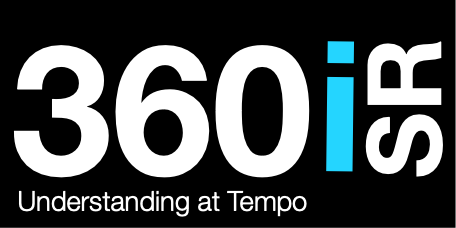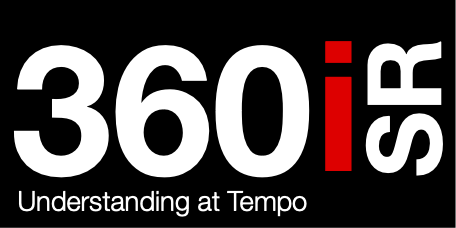FIMI and Cognitive Manipulation
Analysing the Opportunity of 2024 General and Organisational Elections for Foreign Information Manipulation and Cognitive Interference
Abstract
The upcoming general and organisational elections scheduled for 2024 present a significant opportunity for nations and organisations engaged in Foreign Information Manipulation and Interference (FIMI) to exert influence through cognitive manipulation. This paper aims to analyse the landscape of FIMI and cognitive interference within the context of electoral processes, exploring the techniques employed, the potential impact on democratic systems, and the countermeasures required to mitigate such threats. Drawing from scholarly literature, governmental reports, and case studies, this paper provides a comprehensive understanding of the challenges posed by FIMI and cognitive manipulation in the upcoming electoral events.
Executive Summary
Foreign Information Manipulation and Interference (FIMI) poses a significant threat to national security, democratic processes, and strategic interests. To effectively counter FIMI at operational and tactical levels, the following high-level recommendations are proposed:
1. Establish Joint Information Operations Centres (JIOCs): Create centralised hubs for planning, coordinating, and executing information operations, bringing together representatives from different military branches, intelligence agencies, and partner organisations to synchronise efforts.
2. Integrate Information Operations into Operational Planning: Incorporate information operations as an integral component of military campaigns and activities, assessing the information environment, identifying vulnerabilities, and developing strategies to counter adversary manipulation.
3. Form Joint Task Forces for Information Operations (JTF-IO): Establish joint task forces dedicated to addressing specific operational objectives related to countering adversary propaganda, influencing local populations, and shaping perceptions in conflict sones.
4. Integrate Intelligence Support: Embed intelligence units within operational commands to provide real-time support to information operations, including threat assessments, target analysis, and situational awareness updates.
5. Promote Interagency Collaboration: Engage with interagency partners, host nation authorities, and non-governmental organisations to coordinate efforts, leverage complementary capabilities, and enhance interoperability in countering FIMI threats.
6. Conduct Training and Exercises: Conduct training exercises focused on information operations, simulating scenarios involving FIMI threats and practicing response procedures to enhance readiness and effectiveness.
7. Ensure Decentralised Execution with Centralised Oversight: Provide tactical units with flexibility to execute information operations autonomously, while maintaining centralised oversight mechanisms to ensure coherence, unity of effort, and alignment with strategic objectives.
By implementing these recommendations, military organisations can enhance coordination, agility, and effectiveness in countering FIMI threats at operational and tactical levels, safeguarding national security, democratic processes, and strategic interests.
Introduction
The proliferation of digital platforms and the interconnectedness of global communication networks have transformed the landscape of information dissemination, providing unprecedented opportunities for foreign actors to manipulate public opinion and interfere in democratic processes. The 2024 general and organisational elections across various nations present a fertile ground for such interference, as the stakes are high, and the potential impact on geopolitical dynamics is significant.
Foreign Information Manipulation and Interference (FIMI)
FIMI encompasses a range of tactics employed by foreign actors, including state-sponsored entities, non-state actors, and cybercriminals, to disseminate misinformation, sow discord, and influence public opinion in target countries. These tactics may include the use of social media bots, coordinate disinformation campaigns, and cyberattacks targeting electoral infrastructure. The goal of FIMI is to undermine trust in democratic institutions, exacerbate societal divisions, and advance the strategic interests of the perpetrators.
Cognitive Manipulation
Cognitive manipulation refers to the deliberate efforts to exploit cognitive biases, psychological vulnerabilities, and socio-cultural dynamics to shape individuals' perceptions, beliefs, and behaviours. Through targeted messaging, emotional appeals, and selective framing, foreign actors seek to manipulate public discourse and influence electoral outcomes. Cognitive manipulation techniques often exploit confirmation bias, tribalism, and fear, amplifying existing societal tensions and polarising communities.
Impact of Cognitive Manipulation through FIMI operations on Democratic Systems
The proliferation of FIMI and cognitive manipulation poses a grave threat to the integrity of democratic systems worldwide. By eroding trust in electoral processes, undermining the credibility of political institutions, and exacerbating social divisions, these tactics weaken the foundation of democracy and undermine the legitimacy of elected governments. Moreover, the weaponisation of information and the manipulation of public opinion undermine informed decision-making, jeopardising the principles of free and fair elections.
Detection and Deterrence
Detecting and deterring the origin and impact of Foreign Information Manipulation and Interference (FIMI) operations requires a multi-dimensional approach that encompasses technological, regulatory, and societal measures. Below are strategies for detecting and deterring FIMI operations:
- Advanced Monitoring and Analysis:
- Utilise advanced monitoring tools and algorithms to track the dissemination of misinformation, disinformation, and propaganda across digital platforms.
- Employ data analytics and machine learning techniques to identify patterns of coordinated behaviour, suspicious accounts, and deceptive content.
- Collaborate with social media platforms, technology companies, and research institutions to access data and develop comprehensive monitoring systems.
- Attribution and Accountability:
- Invest in forensic analysis and digital forensics to trace the origin of FIMI operations and attribute responsibility to state-sponsored entities, non-state actors, or cybercriminals.
- Establish international norms and protocols for attributing and condemning acts of FIMI, fostering collective action and accountability among the global community.
- Impose diplomatic, economic, and legal consequences on countries and organisations found to be engaging in malicious FIMI activities, deterring future interference attempts.
- Transparency and Information Sharing:
- Enhance transparency in political advertising and online content moderation, requiring platforms to disclose information about the funding sources, targeting criteria, and dissemination strategies of political campaigns.
- Facilitate information sharing and collaboration among governmental agencies, law enforcement agencies, intelligence services, and civil society organisations to identify and counter FIMI operations effectively.
- Establish mechanisms for reporting suspicious activity, enabling citizens and stakeholders to contribute to the detection and deterrence of FIMI activities.
- Strengthening Cybersecurity:
- Bolster cybersecurity measures to protect electoral infrastructure, voter registration databases, and communication networks from cyberattacks and hacking attempts.
- Conduct regular vulnerability assessments and penetration testing to identify weaknesses in electoral systems and implement robust cybersecurity protocols to mitigate risks.
- Foster public-private partnerships to enhance cybersecurity resilience, leveraging expertise from both government agencies and private sector entities to safeguard critical digital infrastructure.
- Promoting Media Literacy and Critical Thinking:
- Implement comprehensive media literacy programs and educational initiatives to empower citizens to critically evaluate information sources, detect misinformation, and resist cognitive manipulation tactics.
- Foster a culture of digital literacy and critical thinking in schools, universities, and community organisations, equipping individuals with the skills and knowledge necessary to navigate the digital information landscape responsibly.
- Encourage media organisations and journalists to uphold ethical standards of reporting, fact-checking, and verification, promoting accuracy and integrity in news dissemination.
In conclusion, detecting and deterring the origin and impact of FIMI operations requires a coordinated and proactive approach that leverages technological innovation, international cooperation, regulatory oversight, and societal resilience. By enhancing monitoring capabilities, strengthening attribution mechanisms, promoting transparency, bolstering cybersecurity, and investing in media literacy, nations and organisations can effectively combat the threat posed by FIMI and safeguard the integrity of democratic processes.
Countermeasures and Recommendations
Addressing the challenge of FIMI and cognitive manipulation requires a multifaceted approach, encompassing regulatory measures, technological solutions, and public awareness campaigns. Governments must strengthen cybersecurity protocols to safeguard electoral infrastructure, enhance transparency in political advertising, and collaborate with social media platforms to combat disinformation. Additionally, media literacy programs and civic education initiatives play a crucial role in empowering citizens to critically evaluate information sources and resist manipulation tactics. Some measures are detailed below:
- Strengthening Regulatory Frameworks:
- Enhance regulatory frameworks to address the proliferation of disinformation and propaganda on digital platforms, imposing greater transparency requirements on political advertising and content moderation.
- Implement measures to hold social media platforms and technology companies accountable for facilitating the spread of harmful content and deceptive practices, including fines, penalties, and regulatory sanctions.
- Promote international cooperation and coordination to develop standardised guidelines and best practices for combating FIMI, fostering a cohesive and collaborative response among nations and organisations.
Example: In response to concerns about foreign interference in electoral processes, countries such as the United States and European Union have proposed legislative measures to regulate online political advertising, increase transparency in digital campaigning, and combat disinformation. For instance, the EU's Code of Practice on Disinformation aims to promote transparency, integrity, and accountability in online platforms' efforts to address disinformation and safeguard democratic processes.
Enhancing Cybersecurity Protocols
- Strengthen cybersecurity protocols to safeguard electoral infrastructure, voter registration databases, and communication networks from cyberattacks, hacking attempts, and data breaches.
- Implement multi-layered defence mechanisms, including encryption, intrusion detection systems, and incident response procedures, to mitigate risks and enhance resilience against cyber threats.
- Foster collaboration between government agencies, election officials, and cybersecurity experts to share threat intelligence, coordinate response efforts, and address vulnerabilities effectively.
Example: The Cybersecurity and Infrastructure Security Agency (CISA) in the United States collaborates with state and local election officials to provide cybersecurity training, conduct risk assessments, and deploy protective measures to secure electoral infrastructure. Additionally, initiatives such as the Election Infrastructure Information Sharing and Analysis Centre (EI-ISAC) facilitate information sharing and coordination among election stakeholders to enhance cybersecurity resilience.
Promoting Media Literacy and Critical Thinking
- Implement comprehensive media literacy programs and educational initiatives to empower citizens to critically evaluate information sources, identify misinformation, and discern fact from fiction.
- Integrate digital literacy and critical thinking skills into school curricula, teaching students how to navigate the digital information landscape responsibly and resist manipulation tactics.
- Encourage media organisations, journalists, and content creators to uphold ethical standards of reporting, fact-checking, and verification, promoting accuracy, integrity, and accountability in news dissemination.
Example: Organisations such as UNESCO and the Council of Europe's Committee of Ministers have developed media literacy guidelines and resources to promote critical thinking, digital citizenship, and ethical journalism practices. Initiatives like MediaWise and NewsGuard provide fact-checking tools and educational resources to help individuals identify and combat misinformation online.
Enhancing International Cooperation
- Foster international cooperation and collaboration to address the transnational nature of FIMI, promoting information sharing, joint research, and capacity-building initiatives.
- Establish diplomatic channels and communication mechanisms to facilitate coordination among governments, international organisations, and civil society actors in responding to FIMI threats.
- Support initiatives to promote democratic values, freedom of expression, and human rights globally, countering authoritarian regimes' efforts to undermine democratic processes and suppress dissent.
Example: The Global Forum for Media Development (GFMD) and the International Consortium of Investigative Journalists (ICIJ) facilitate cross-border collaboration and investigative reporting on issues related to corruption, political interference, and human rights abuses. International partnerships such as the Open Government Partnership (OGP) and the Community of Democracies promote democratic governance, transparency, and accountability worldwide.
Who… and How?
Integrating Intelligence Collection and Analysis with Strategic Communication (StratCom) and Information Operations (IO) is crucial for developing coherent and effective responses to threats posed by Foreign Information Manipulation and Interference (FIMI). Coordination between these elements ensures that actionable intelligence informs strategic messaging, influence operations, and countermeasures to counter FIMI. A suggestion of how Intelligence Collection and Analysis can integrate with StratCom and IO:
- Intelligence Support to StratCom and IO
- Intelligence analysis provides insights into the motivations, tactics, and capabilities of adversaries engaging in FIMI.
- StratCom and IO planners use this intelligence to craft messaging and narratives that resonate with target audiences, counter disinformation, and shape perceptions.
- Intelligence assessments identify vulnerabilities in adversaries' information operations, enabling proactive measures to disrupt their activities.
- Target Audience Analysis
- Intelligence collection and analysis identify key target audiences susceptible to FIMI tactics, including domestic populations, foreign influencers, and decision-makers.
- StratCom and IO planners use audience analysis to tailor messaging and communication strategies to address specific concerns, beliefs, and preferences.
- Content Development and Dissemination
- Intelligence insights inform the development of content for strategic messaging and influence campaigns, ensuring accuracy, credibility, and relevance.
- StratCom and IO teams leverage intelligence assessments to identify disinformation narratives and develop counter-messaging strategies to debunk falsehoods and build resilience against manipulation.
- Real-time Monitoring and Response
- Intelligence agencies conduct real-time monitoring of FIMI activities, providing timely updates and analysis to inform StratCom and IO decision-making.
- StratCom and IO teams adjust messaging and tactics based on intelligence indicators, adapting to evolving threats and opportunities in the information environment.
- Evaluation and Assessment
- Intelligence analysis evaluates the effectiveness of StratCom and IO efforts in countering FIMI, assessing impact, reach, and resonance with target audiences.
- StratCom and IO practitioners use intelligence assessments to refine strategies, optimise resource allocation, and measure success in achieving strategic objectives.
As for coordination of efforts, this would ideally be led by a dedicated unit or organisation within the military with expertise in information operations, psychological operations, and strategic communication. In the United States military, for example, this role is typically fulfilled by organisations such as:
- United States Special Operations Command (USSOCOM): USSOCOM's Psychological Operations (PSYOP) units specialise in influencing target audiences through various media channels, including radio, television, social media, and face-to-face communication. They work closely with intelligence agencies and other stakeholders to synchronise information operations with strategic objectives.
- United States Cyber Command (USCYBERCOM): USCYBERCOM is responsible for defending U.S. military networks, conducting cyber operations, and coordinating efforts to counter cyber threats, including those related to information manipulation and interference. They collaborate with intelligence agencies to gather intelligence on cyber threats and support information operations to counter adversary activities.
- United States Strategic Command (USSTRATCOM): USSTRATCOM has a broad mission encompassing global strategic deterrence, space operations, cyberspace operations, and information operations. It provides coordination and oversight for military efforts related to information operations, working closely with other combatant commands and interagency partners.
These organisations serve as focal points for coordinating intelligence, information operations, and strategic communication efforts, ensuring a unified and synchronised approach to countering FIMI threats and advancing national security objectives.
Operational and Tactical Integration and Application
Coordination at the operational and tactical levels is essential for ensuring that efforts to counter Foreign Information Manipulation and Interference (FIMI) are synchronised, responsive, and effective. Here's how coordination can occur at these levels:
- Establishment of Joint Information Operations Centres (JIOCs)
- JIOCs serve as centralised hubs for planning, coordinating, and executing information operations at the operational level.
- Representatives from different military branches, intelligence agencies, and partner organisations collaborate within JIOCs to synchronise efforts and leverage expertise across multiple domains.
- Integration of Information Operations into Operational Planning
- Operational planning processes incorporate information operations as an integral component of military campaigns and activities.
- Operational planners assess the information environment, identify vulnerabilities to FIMI, and develop strategies to counter adversary propaganda, disinformation, and psychological manipulation.
- Joint Task Forces for Information Operations (JTF-IO)
- Joint task forces dedicated to information operations are established to address specific operational objectives, such as countering adversary propaganda, influencing local populations, or shaping perceptions in conflict sones.
- JTF-IO units bring together personnel with expertise in psychological operations, cyber operations, intelligence analysis, and strategic communication to execute targeted campaigns and initiatives.
- Integration of Intelligence Support
- Intelligence units embedded within operational commands provide real-time intelligence support to information operations, including threat assessments, target analysis, and situational awareness updates.
- Intelligence analysts collaborate closely with information operations planners to identify adversary tactics, assess the effectiveness of countermeasures, and adapt strategies in response to evolving threats.
- Interagency Collaboration
- Operational commanders engage with interagency partners, host nation authorities, and non-governmental organisations (NGOs) to coordinate efforts and leverage complementary capabilities.
- Interagency coordination mechanisms facilitate information sharing, resource allocation, and joint planning to address complex challenges posed by FIMI.
- Training and Exercises
- Military units conduct training exercises focused on information operations, simulating scenarios involving FIMI threats and practicing response procedures.
- Joint exercises bring together units from different branches and partner nations to enhance interoperability, test coordination mechanisms, and build collective capabilities in countering FIMI.
- Decentralised Execution with Centralised Oversight
- Tactical units retain flexibility to execute information operations autonomously based on local conditions and priorities.
- Centralised oversight mechanisms, such as operational directives and guidance from higher headquarters, ensure coherence, unity of effort, and adherence to overarching strategic objectives.
By implementing these measures, military organisations can enhance coordination at the operational and tactical levels, enabling agile responses to FIMI threats and maximising the effectiveness of information operations in support of broader military objectives.
Conclusion
In conclusion, addressing the threat of FIMI and safeguarding democratic processes requires a comprehensive and collaborative approach that encompasses regulatory measures, cybersecurity protocols, media literacy initiatives, and international cooperation. By strengthening regulatory frameworks, enhancing cybersecurity resilience, promoting media literacy, and fostering international cooperation, nations and organisations can effectively counter the threat of FIMI and uphold the integrity of democratic governance.
As the 2024 general and organisational elections approach, the threat of foreign information manipulation and cognitive interference looms large. By understanding the techniques employed by malicious actors, acknowledging the vulnerabilities of democratic systems, and implementing robust countermeasures, nations and organisations can mitigate the risks posed by FIMI and safeguard the integrity of electoral processes.
References:
- Howard, P. N., & Kollanyi, B. (2016). Bots, #StrongerIn, and #Brexit: Computational Propaganda During the UK-EU Referendum. arXiv preprint arXiv:1606.06807.
- Nye Jr, J. S. (2011). The future of power. Public Affairs.
- Watts, C., & Bindenagel, J. A. (2018). Countering Russian Information Operations in the Age of the Information Warfare. Journal of International Affairs, 71(1), 21-37.
- Woolley, S. C., & Howard, P. N. (2016). Computational Propaganda in the United States of America: Manufacturing Consensus Online. Council of Europe.
- World Economic Forum. (2020). Global Risks Report 2020. World Economic Forum.




